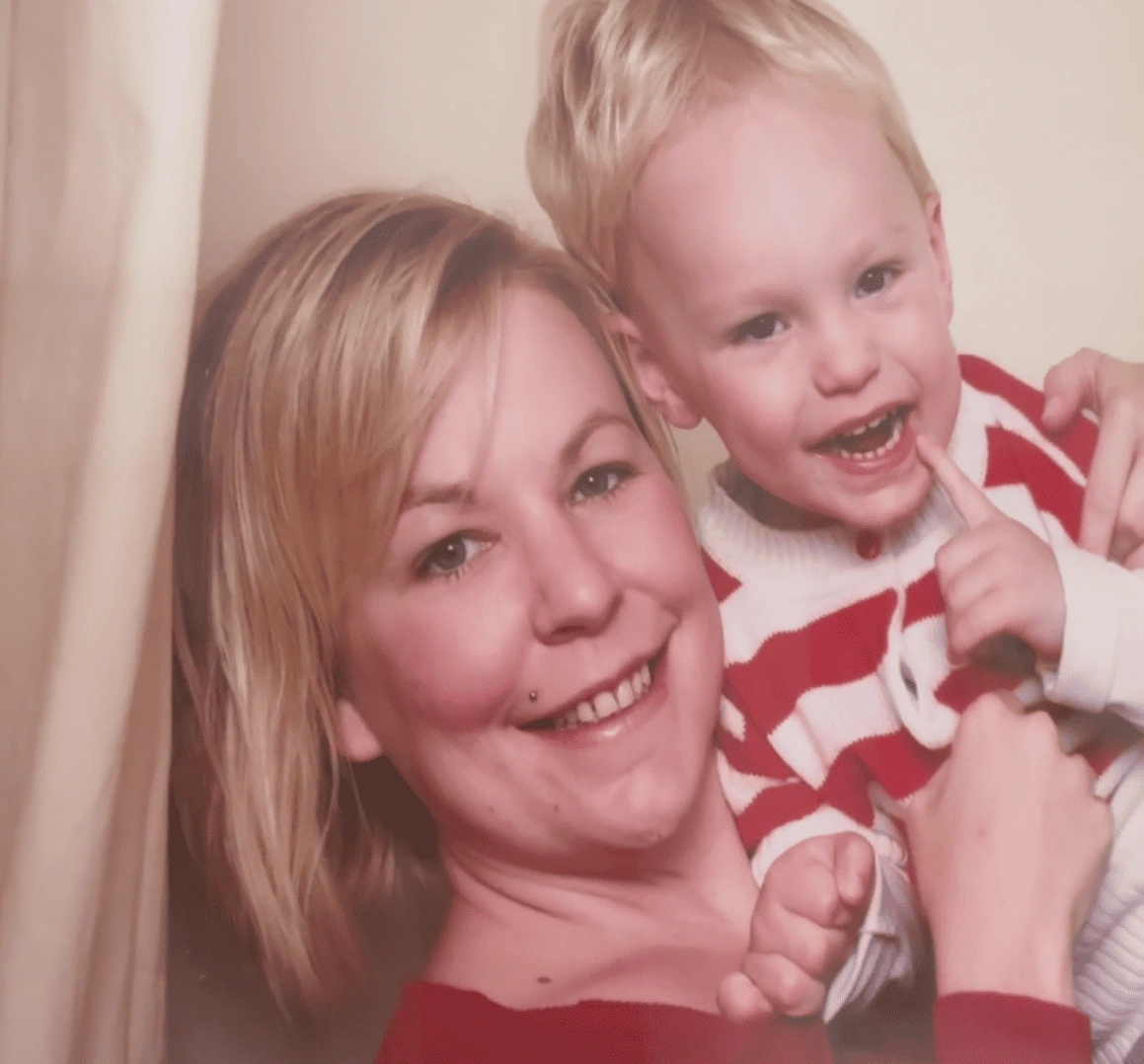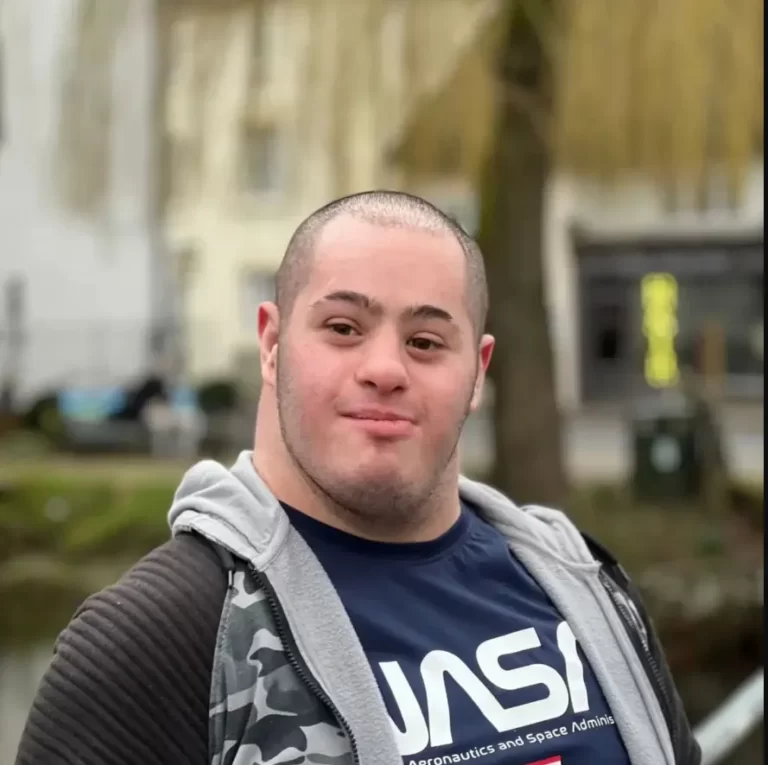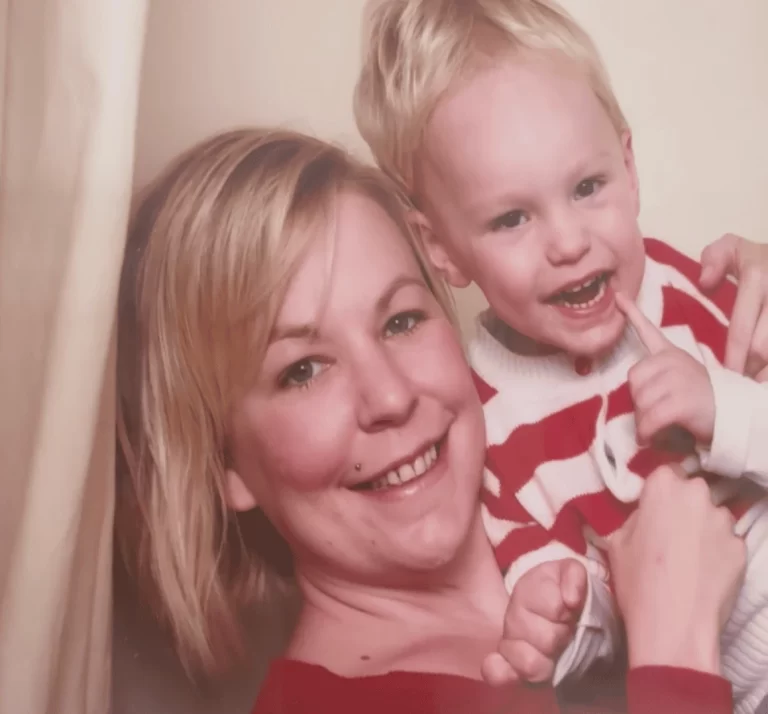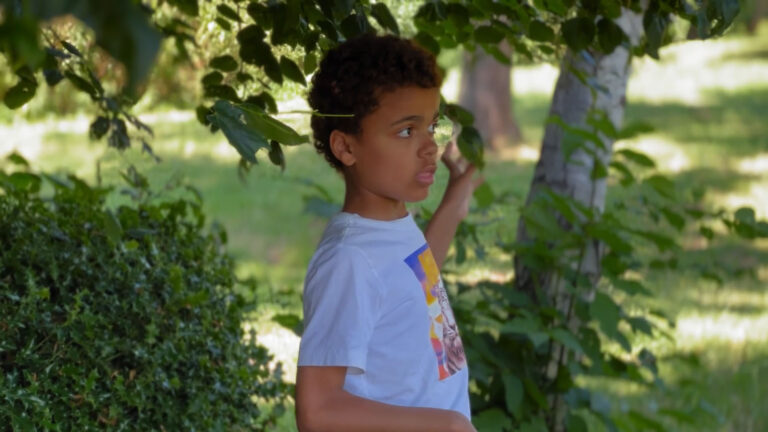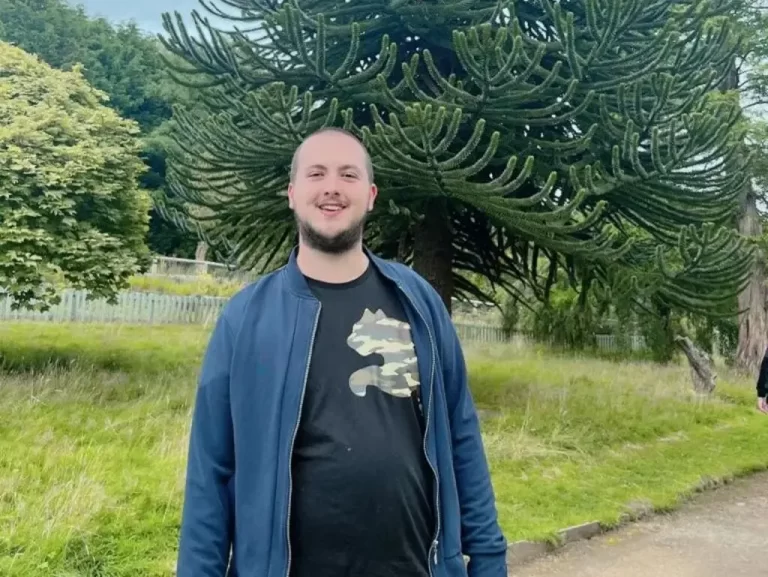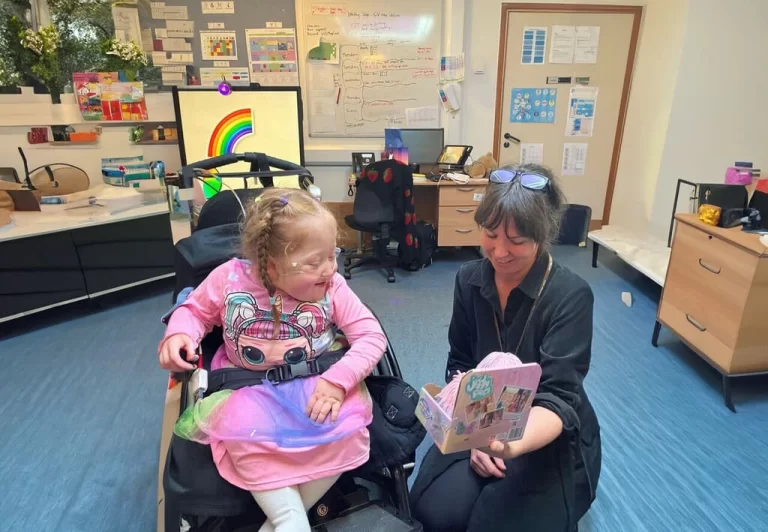Meet Ben, a dynamic young man who cherishes the company of his best friend – Clados, the bulldog. Ben’s vibrant personality shines through his daily routines, where he enjoys the company of his support workers, Alford (Alfie) and Tendayi. They help Ben navigate his challenges and live with increased independence, often accompanying him on outings such as shopping, dining out, and leisurely walks.
Ben’s devoted mother, Hazel, is thrilled to witness her son embracing life on his own terms. Alford, the registered nurse, and Tendayi, the support worker, play pivotal roles in guiding Ben towards greater independence and fulfilment. Together, they celebrate his inspiring journey.
The Story
Ben is autistic and lives with pathological demand avoidance (PDA). He’s faced challenges navigating his daily life and personal interactions since childhood. Without access to the right tools and support, Ben developed feelings of frustration and exhibited behaviours of concern. Hazel, who is dedicated to her son, was profoundly affected by these challenges and the lack of humanised support.
Additionally, due to the lack of critical support and necessary adjustments at school, Ben left one year earlier than his peers. This early departure meant he unfairly missed educational opportunities and social connections. The weight of the situation fell heavily on Hazel’s shoulders. She had to stay home with Ben, feeling helpless and unsure how to best assist her son. Meanwhile, Ben felt trapped at home, unable to cope with changes in routine and environment.
Ben and Hazel needed a trustworthy team to provide proactive and consistent support. Nurseline Community Services stepped in, and Tendayi and Alford were immediately determined to help transform their lives.

The Approach
Building trust takes time. It requires a commitment to providing support and offering your hand, even when challenges arise. Alford and Tendayi’s dedication reassured Ben, and over time, through witnessing consistent actions, he began to feel more secure.
Alford and Tendayi listened attentively to Ben’s needs and responded with understanding and patience. They learnt about his interests and preferences and began understanding his dislikes. Ben could see they genuinely cared for him, fostering trust and building a supportive relationship.
The main engine behind this transformative approach was Positive Behaviour Support (PBS). PBS is centred on understanding the underlying factors leading to behaviours of concern. It uses proactive strategies to holistically address these behaviours and identify people’s support needs. Utilising our in-house PBS team, we discovered that Ben’s behaviours of distress frequently derived from feelings of instability and insecurity, which were worsened by constant changes in his environment.
The PBS strategy began with a thorough evaluation of Ben’s needs, desires and preferences while also assessing what triggered his behaviours of concern. Ben was actively engaged in this evaluative process, allowing him to express his emotions and worries. This not only yielded significant insights for the support workers but also allowed Ben to experience a greater sense of autonomy and self-esteem.
Following the evaluation, a tailored care plan was carefully crafted. The plan included daily schedules to instil a sense of safety and predictability, therapeutic activities to alleviate symptoms of PDA and regular mental health support to enhance quality of life. The positive impact on Ben’s well-being and behaviour is a testament to the effectiveness of the PBS strategy.
Positive Outcomes
After a few months of consistent and holistic care, Ben began to express his true self. He is learning how to communicate his needs and desires, and his behaviours of concern have dramatically decreased. Ben is an overall happier person, who is more integrated with the community and world around him.
Now, Ben enjoys activities he previously hesitated in, like going to restaurants, visiting shops to buy games, and even walking outdoors. With the help of PBS and person-centred practices, Ben transformed his life for the better. He regards his support workers as trusted, close friends and truly likes their company.
Moreover, Hazel has discovered a newfound sense of independence and fulfilment. She engages in activities that were once out of reach, such as pursuing hobbies and taking time for herself. Hazel is beginning to find harmony, balancing being a mother and pursuing her own personal development.
Ben and Hazel finally have the support they needed all along. As they continue to grow and experience life, Alford and Tendayi will always be there, ready to offer a helping hand.
